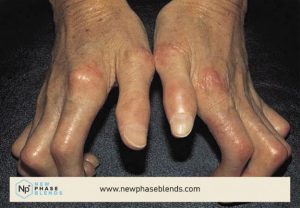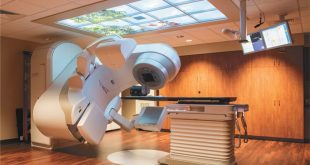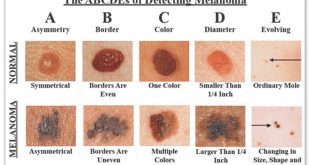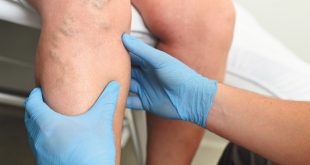By Dr. Nathalie Solomon: PharmD, CPH
 This article is dedicated to Sophie Doffegnies. Sophie was diagnosed 5 months ago and has been using CBD/CBG drops for the relief of the symptoms caused by schleroderma.
This article is dedicated to Sophie Doffegnies. Sophie was diagnosed 5 months ago and has been using CBD/CBG drops for the relief of the symptoms caused by schleroderma.
Schleroderma is a chronic autoimmune disease characterized by the hardening and thickening of the skin and connective tissues.
Traditional medications like Plaquenil, commonly used to manage symptoms, often come with a range of side effects and can be difficult to tolerate. In recent years, there has been growing interest in exploring alternative therapies for symptom relief. One such alternative is cannabidiol (CBD), a non-psychoactive compound derived from the cannabis plant. This article examines the potential of CBD in alleviating Schleroderma symptoms, while considering its advantages over conventional medications.
Understanding Schleroderma
Schleroderma is a rare autoimmune disorder that affects the body’s connective tissues. It leads to the overproduction of collagen, causing skin thickening, organ damage, and circulation problems. Symptoms can vary widely, ranging from localized skin involvement to systemic manifestations affecting internal organs. While the exact cause of Schleroderma is unknown, it is thought to involve a combination of genetic and environmental factors. Managing the symptoms of Schleroderma can be challenging, as conventional treatments often carry significant side effects and may not be well tolerated by all patients.
Limitations of Conventional Medications
One commonly prescribed medication for Schleroderma is Plaquenil (hydroxychloroquine). While it can help manage symptoms and slow disease progression, it is not without drawbacks. Plaquenil may cause adverse effects such as gastrointestinal issues, vision problems, and liver damage. Moreover, not all patients respond favorably to this medication, and some may find it difficult to tolerate due to its side effects. As a result, researchers have been exploring alternative approaches to improve the quality of life for Schleroderma patients.
The Potential of CBD for Symptom Relief
Cannabidiol (CBD), a compound derived from the cannabis plant, has gained attention for its potential therapeutic benefits. CBD interacts with the body’s endocannabinoid system, which plays a role in regulating various physiological processes, including inflammation and immune responses. Studies have suggested that CBD possesses anti-inflammatory, immunomodulatory, and antioxidant properties, which may be beneficial for individuals with autoimmune conditions like Schleroderma. Preliminary research indicates that CBD may help alleviate pain, reduce skin fibrosis, improve vasodilation, and enhance overall well-being in Schleroderma patients.
Advantages of CBD over Conventional Medications
Compared to conventional medications, CBD offers several advantages. Firstly, CBD is generally well-tolerated and has a favorable safety profile, with minimal side effects reported. This is particularly important for individuals who struggle with the side effects of traditional treatments. Secondly, CBD is available in various forms, including oils, capsules, and topicals, providing flexibility in administration and personalized dosing. Additionally, CBD is non-psychoactive, meaning it does not induce the intoxicating effects associated with tetrahydrocannabinol (THC), another compound found in cannabis. This allows patients to experience the potential benefits of CBD without compromising their daily activities or cognitive function.
Cannabidiol Therapy, EHP-101, Put on Fast Track by FDA
Emerald Health Pharmaceuticals, the company developing EHP-101, is opening a Phase 2 clinical trial (NCT04166552) in Australia, New Zealand, and the U.S. This study, yet to start enrolling, will test the therapy’s safety, tolerability, pharmacokinetics (its absorption, distribution, metabolism, and excretion) and preliminary efficacy, at low and high daily doses, in an estimated 36 adults with diffuse cutaneous scleroderma.1
Cannabis sativa as a Potential Treatment
for Systemic Sclerosis
Cannabinoids are a group of compounds that can be categorized as endocannabinoids, phytocannabinoids, synthetic cannabinoids, and purified cannabinoids.2 They act on the endocannabinoid system, discovered only in the early 1990s, through different types of receptors.3 Two of the most stud- ied receptors are cannabinoid receptor type 1 (CB1) and type 2 (CB2) that immune cells and fibroblasts are able to express.2 There has been increasing evidence on the immunomodulatory effects of cannabinoids. Some studies postulate the modulation of Th1/Th2 cells balance towards the enhancement of Th2 cell response, inhibition of the fibroblast activation, and reduction of transforming growth factor-beta (TGFβ) levels, in mouse models of scleroderma.3 In another murine model study, a CB2 agonist prevented the development of skin and lung fibrosis and decreased the levels of anti-DNA-topoisomerase antibodies and fibroblast proliferation.2 A novel oral selective CB2 agonist is currently in a phase 3 trial (clinicaltrials.gov, NCT03398837), and has already demonstrated a satisfactory safety profile as well as a statically significant reduction on the modified Rodnan Skin Score in diffuse SSc patients (clinicaltri- als.gov, NCT02465437).
If you are interested in learning more, The Greene Pharmacist offers a full consultation on any Hemp Extract needs you may have. Worried about dosages? Worried about drug interactions? Not sure if Hemp Extract can help you? Under the expertise of a licensed pharmacist, each product comes with the service of cannabis consultations, drug-drug interaction checks, assistance of product selection or dosage recommendations. With topical, oral, and pet products we have something for everyone in your household. Send us an email or message our Facebook page to speak to our pharmacist Dr. Solomon.
THE GREENE PHARMACIST
340 SW 110th Ave,
Ocala, FL 34481
TheGreenePharmacist
352-565-7028
thegreenepharmacist.com
References:
1. https://sclerodermanews.com/news/ehp-101-granted-fda-fast-
track-designation-for-scleroderma-treatment/
2. Katz-Talmor D, Katz I, Porat-Katz BS, Shoenfeld Y. Cannabinoids for
the treatment of rheumatic diseases – where do we stand? Nat
Rev Rheumatol 2018; 14: 488-98
3. Katchan V, David P, Shoenfeld Y. Cannabinoids and autoimmune
diseases: a systematic review. Autoimmun Rev 2016; 15: 513-28.
 Central Florida Health and Wellness Magazine Health and Wellness Articles of the Villages
Central Florida Health and Wellness Magazine Health and Wellness Articles of the Villages



